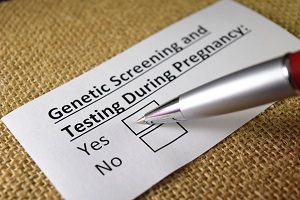To date, to diagnose sickle cell anemia in a fetus requires an invasive test, which involves a risk of miscarriage. A team of British researchers decided to solve the problem by developing a non-invasive prenatal screening test even for this disease.
Dr. Julia van Campen explained that the test works like the traditional fetal DNA test. The doctors isolate the cells of the fetus present in the maternal blood, in order to analyze its DNA. If the test is negative, everything is fine. If it is positive, we proceed with more invasive controls.
The test should be used for couples where both parents are carriers of sickle cell disease. In fact, for the disease to manifest itself, it is necessary for the child to inherit the sick gene from both parents. There is therefore 1 possibility out of 4 that the child of a couple of carriers becomes ill. Unfortunately it is not easy to develop a non-invasive prenatal test for such a disease. Over the years there have been attempts, all failed. Until today, at least.
The researchers analyzed samples from 24 pregnant women carrying sickle cell disease. Using a unique molecular identifier, they were able to analyze tiny DNA fragments taken from the 8th week of gestation. The test proved to be reliable in 21 cases out of 24 and only in 3 cases gave unclear results. This is only a first step, but the authors of the study are confident of being able to develop a reliable test even for this disease.
Source: medicalxpress.com
Add a comment





